Interesting Facts About Lagos, Nigeria
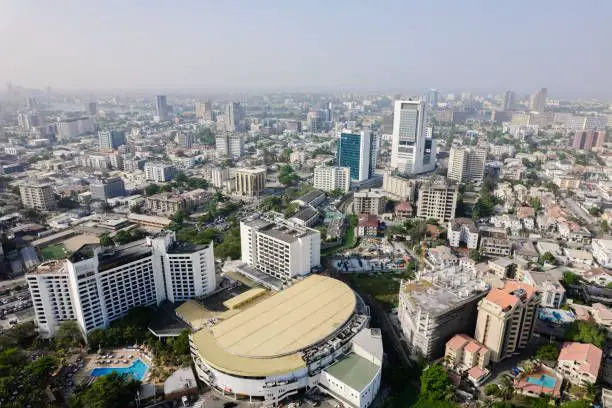
Lagos, the city that never sleeps is a bustling metropolis located in the southwestern part of Nigeria. It is the largest city in Nigeria and the seventh largest in the world, with an estimated population of over 20 million people.
Lagos is a city that never sleeps; it is always alive with activities both day and night. From the noise of traffic on the streets to the sounds of music coming from clubs and bars, Lagos is a city that is always buzzing with energy.
Lagos is known for its vibrant culture, diverse population, and its bustling economy.
The city is home to a large number of people from different ethnic groups in Nigeria, as well as expatriates from all over the world. This diversity is reflected in the city's cuisine, music, and fashion.
One of the most famous landmarks in Lagos is the National Museum. The museum is home to a vast collection of artifacts that showcase the rich history and culture of Nigeria.
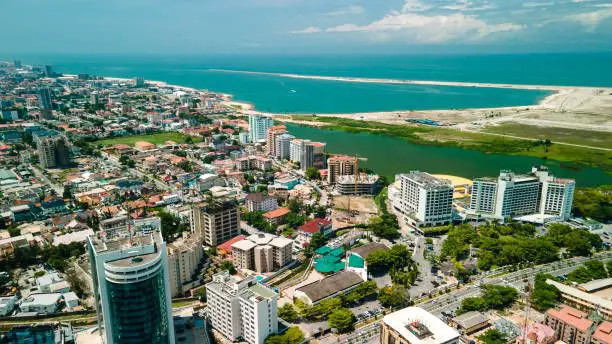
The museum also has a gallery that displays contemporary Nigerian art, which is gaining worldwide recognition.
Lagos is also known for its beautiful beaches. The city is located on the coast of the Atlantic Ocean, and there are several beaches that are popular with both tourists and locals.
Some of the most popular beaches in Lagos include Elegushi Beach, Tarkwa Bay Beach, and Lekki Beach.
For those interested in shopping, Lagos has several markets that offer a wide range of goods at affordable prices.
The most famous of these markets is the Balogun Market. It is one of the largest markets in West Africa, and you can find almost anything you need here.
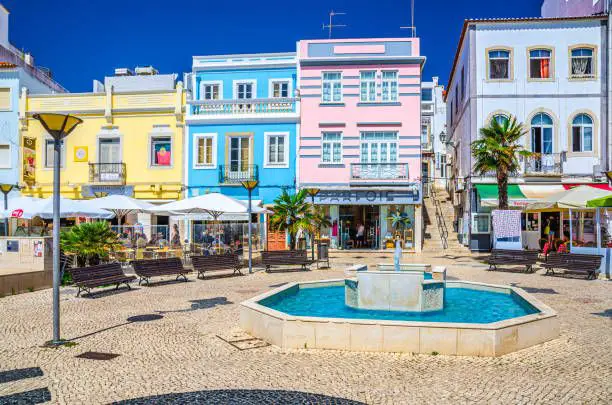
Lagos is also home to a vibrant nightlife scene. There are several bars, clubs, and lounges where you can dance the night away to the latest music. Some of the most popular nightclubs in Lagos include Club Quilox, Escape Nightclub, and The Cave.
Lagos is a city that is constantly growing and evolving. The city is currently undergoing several major infrastructure projects, including the construction of a new airport and a light rail system.
These projects are aimed at improving the city's transportation system and making it easier for people to get around.
Lagos is a city that has something for everyone. Whether you are interested in history and culture, shopping, or nightlife, Lagos has it all.
It is a city that never sleeps, and the energy and excitement of the city are contagious. If you are ever in Nigeria, Lagos is definitely a city that you should visit.
Facts About Lagos
Tallest Building in West Africa
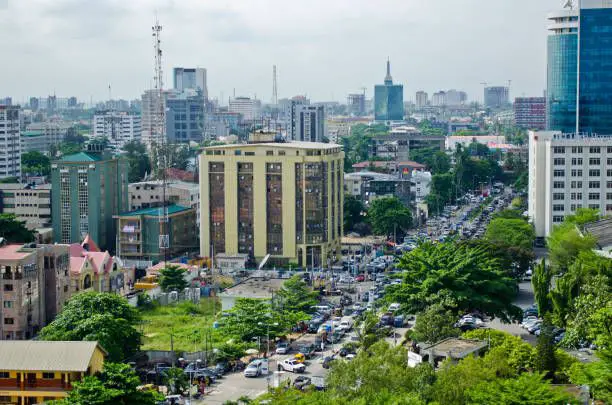
Lagos is home to the tallest building in West Africa, the iconic "NECOM House" which stands at 160 meters tall.
The building, which was completed in 1979, is located in the Marina district of Lagos Island and is one of the most recognizable landmarks in the city.
NECOM House was designed by the architectural firm of Akinola Olumodeji & Partners and was originally built for the National Electric Power Authority (NEPA).
The building served as the headquarters of NEPA until 2005 when it was acquired by the Nigerian Telecommunications Limited (NITEL).
The building has 32 floors and is primarily used as office space, with tenants ranging from government agencies to multinational corporations.
The top floors of the building are reserved for telecommunications equipment and are not accessible to the public.
NECOM House is an impressive feat of engineering and construction and is a symbol of Lagos' growth and development.
The building has become a popular tourist attraction and offers stunning views of the city from its observation deck, which is located on the 30th floor.
Overall, the construction of NECOM House demonstrates Lagos' commitment to modernity and innovation.
The building is a testament to the city's progress and a shining example of the heights that can be achieved through hard work, dedication, and a willingness to dream big.
Lagos state hosts the tallest building in West Africa, NECOM house towers and it is 160m above the city.
Third Mainland Bridge
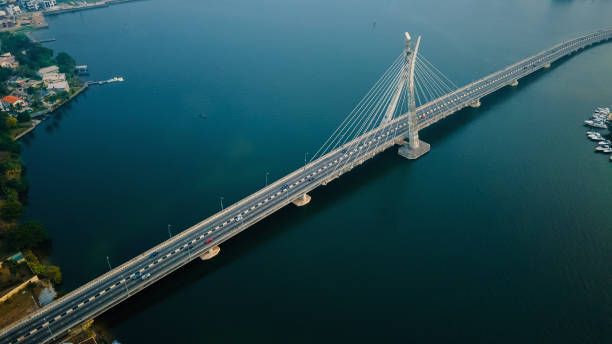
The Third Mainland Bridge is one of the most iconic landmarks in Lagos, and it connects Lagos Island to the mainland.
The bridge was officially opened on July 4, 1990, and was at the time the longest bridge in Africa, measuring 11.8 kilometers.
The Third Mainland Bridge was constructed by Julius Berger Nigeria Plc, one of the leading construction companies in Nigeria.
The bridge was named after General Ibrahim Babangida, a former military head of state in Nigeria, who was instrumental in the construction of the bridge.
The Third Mainland Bridge has become a vital transportation link for Lagos, as it helps to ease traffic congestion on the other bridges that connect Lagos Island to the mainland.
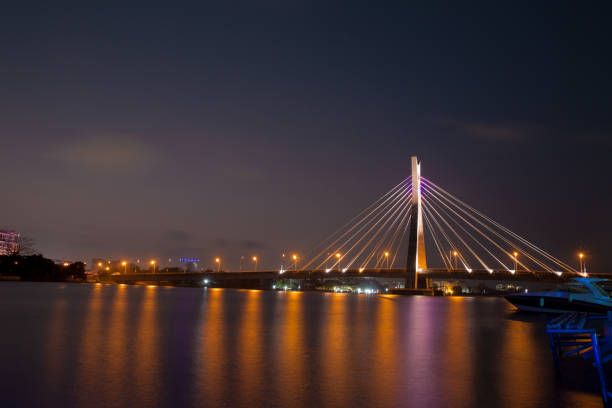
The bridge is also a major tourist attraction, as it offers breathtaking views of the Lagos Lagoon and the city skyline.
Over the years, the Third Mainland Bridge has undergone several renovations and repairs to ensure its structural integrity.
In 2020, the bridge was closed for six months to undergo maintenance work, which included the replacement of worn-out expansion joints and other critical components.
The Third Mainland Bridge is not only a vital transportation link but also a symbol of Nigeria's commitment to infrastructure development.
The bridge has played a significant role in the growth and development of Lagos and has become an integral part of the city's landscape.
Lagos Handles 80% of the Country’s Imports
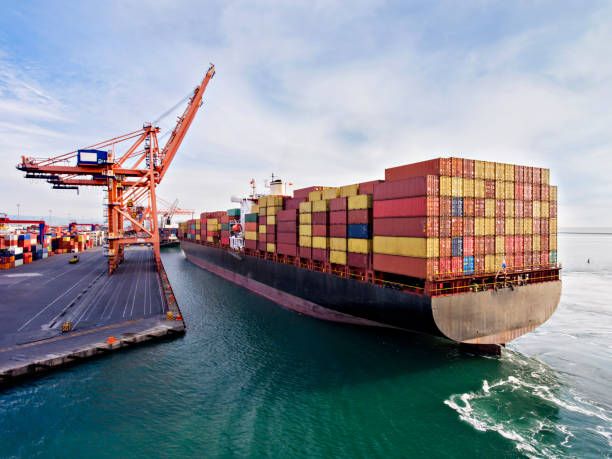
Lagos is the largest port city in Nigeria and handles about 80% of the country's imports. The city is home to several seaports, including the Lagos Port Complex and the Tin Can Island Port, which are the busiest ports in Nigeria.
The Lagos Port Complex, which is located in Apapa, is the largest port in Nigeria and one of the busiest in Africa. It handles a wide range of cargoes, including petroleum products, chemicals, and general cargo.
The Tin Can Island Port, which is located in the Amuwo-Odofin area of Lagos, is the second-largest port in Nigeria and is mainly used for the importation of vehicles.
The ports in Lagos play a significant role in the country's economy, as they facilitate trade and commerce between Nigeria and other countries.
The ports handle millions of tons of cargo each year, and their activities contribute significantly to the country's Gross Domestic Product (GDP).
The Lagos ports have undergone several upgrades and modernization projects in recent years to increase their efficiency and capacity.
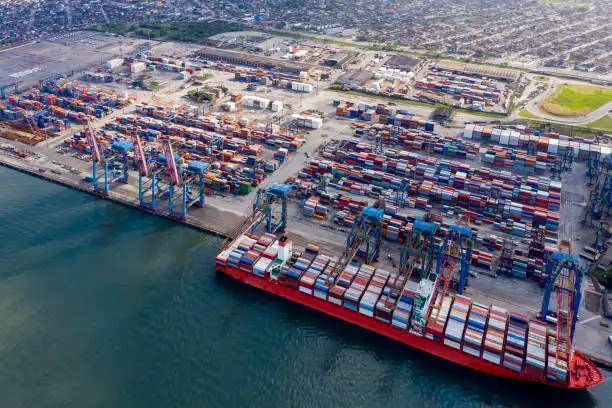
The Nigerian government has also implemented several reforms aimed at streamlining port operations and reducing the time it takes for goods to clear at the ports.
Despite these efforts, the ports in Lagos still face several challenges, including congestion, inadequate infrastructure, and inefficient operations.
These challenges have led to delays in cargo clearance, increased costs, and reduced competitiveness.
In conclusion, Lagos is a vital port city in Nigeria and plays a significant role in the country's economy.
The city's ports handle about 80% of the country's imports and are crucial to the growth and development of Nigeria's trade and commerce sector.
While there are still challenges facing the ports in Lagos, efforts are being made to address them and ensure that the ports continue to operate efficiently and effectively.
Lagos was called Eko before colonization
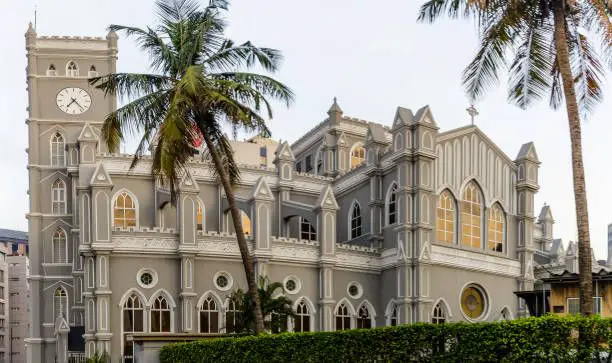
Lagos has a rich and complex history that dates back several centuries before the arrival of European colonizers. The city was originally called "Eko" by the indigenous people who lived in the area.
In the 15th century, the city became an important center for the transatlantic slave trade, with thousands of slaves passing through the city's ports each year.
The city's strategic location on the coast made it a hub for trade and commerce, and it quickly became one of the most important cities in West Africa.
The Oba of Benin, who was a powerful monarch in the region, supported the slave trade and received a significant portion of the profits from it.
However, in 1841, Oba Akitoye ascended to the throne of Lagos and attempted to ban the slave trade.
This decision was met with resistance from the powerful slave traders and Oba Kosoko, who had been deposed by Akitoye, launched a counter-attack on the city. Akitoye was forced to flee, and Kosoko reinstated the slave trade.
It was not until the arrival of British colonizers in the late 19th century that the slave trade was finally abolished in Lagos.
The British established a protectorate over Lagos in 1861 and gradually extended their control over the rest of Nigeria over the next few decades.
Today, Lagos is a vibrant and cosmopolitan city that is home to over 20 million people. It is the largest city in Nigeria and one of the fastest-growing cities in the world.
While the legacy of the slave trade still lingers in the city's history, Lagos has evolved into a thriving hub for business, culture, and innovation.
Lagos was capital when Nigeria gained independence
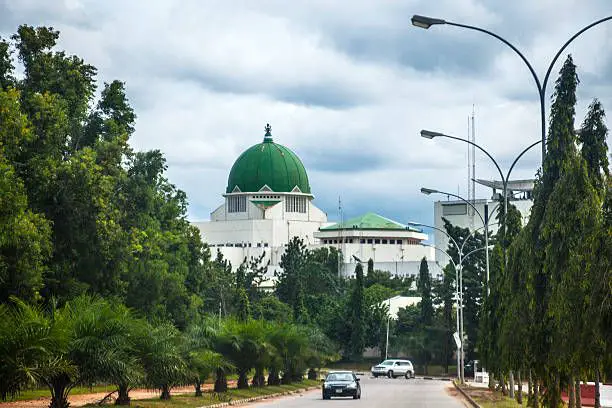
Lagos was the capital of Nigeria when the country gained independence from Britain in 1960.
The city served as the capital of Nigeria from 1914, when the British amalgamated the colony of Lagos with the protectorate of Southern Nigeria, until 1991.
During this period, Lagos played a central role in the political and economic life of Nigeria.
The city was the seat of government, and it was home to many important institutions, including the National Assembly, the Supreme Court, and the Central Bank of Nigeria.
However, by the 1980s, Lagos had become overcrowded and congested, with a population of over 10 million people.
The city's infrastructure struggled to keep up with the rapid growth, and many of its residents faced significant challenges in accessing basic services like water, electricity, and healthcare.
To address these issues, the Nigerian government decided to relocate the capital from Lagos to a new purpose-built city in the center of the country.
Abuja was chosen as the new capital, and a new Federal Capital Territory was established to govern the city and its surrounding area.
The relocation of the capital was a significant event in Nigerian history and marked a new phase in the country's development.
While Lagos is no longer the capital of Nigeria, it remains an important center of commerce, culture, and innovation.
The city's rich history and vibrant energy continue to attract people from all over Nigeria and the world.
Conclusion
Lagos is a dynamic and vibrant city with a rich history and a bright future. The city has undergone significant changes over the centuries, from its origins as a small fishing village to its current status as one of the largest and most important cities in Africa.
Lagos has been a center of trade, culture, and innovation for centuries, and it continues to play a critical role in shaping Nigeria's future.
Despite its challenges, Lagos remains a city of tremendous potential, with a young and rapidly growing population that is driving innovation and progress in a variety of fields.
From its towering skyscrapers to its bustling markets and vibrant nightlife, Lagos is a city of contrasts and contradictions that never fails to surprise and inspire.
Whether you are a visitor to the city or a resident, Lagos offers a unique and unforgettable experience.
From the iconic Third Mainland Bridge to the beaches of Bar Beach and Lekki, there is always something new to discover and explore in this exciting and dynamic city.
